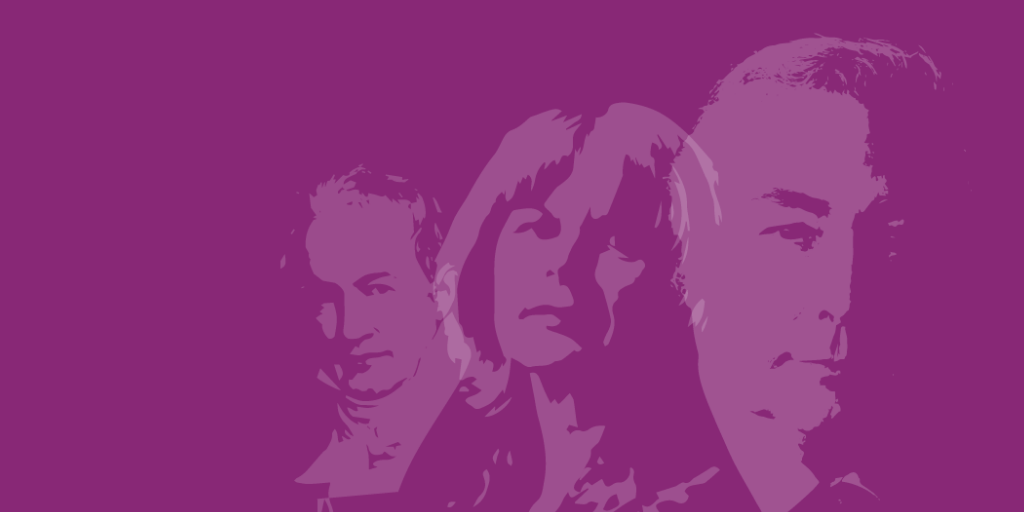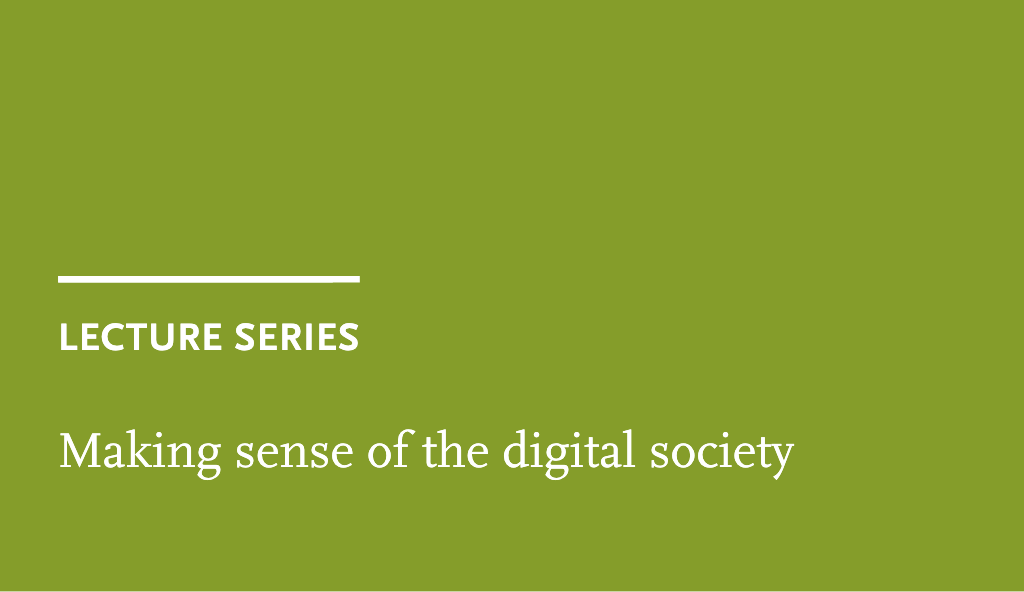
Compendium: Making sense of the digital society
This compendium provides a collection of current research on digitisation and society. It is based on the lecture series Making sense of the digital society, which was launched in 2017 in collaboration with the Federal Agency for Civic Education (bpb). The compendium is divided into seven clusters, each dedicated to a specific topic such as AI and algorithms or platform governance, providing insight into the diverse content of digitisation. For each cluster, video recordings of the individual lectures from the lecture series are available. In addition, there are corresponding podcasts for each cluster, contextualising the topic with excerpts from the lectures as well as additional explanations and background discussions. Further materials such as blog posts or journal articles, originating from the Alexander von Humboldt Institute for Internet and Society (such as from the publication series Concepts of the digital society), deepen the understanding of current discourses on digital transformation.
The content is aimed at anyone interested in the diverse phenomena of digitisation. It can also be used in educational contexts such as schools and adult education.
DIGITAL SOCIETY LECTURE SERIES
This high-profile lecture series thrives to develop a European perspective on the processes of transformation that our societies are currently undergoing.
Cooperation

Cluster
Digital society
The digitalisation of our world is bringing about a multitude of changes in our society: From the way we handle data to our social system to our economic and social order. What do these developments mean for fundamental principles such as equality and fairness? How can we understand the use of technologies that are becoming increasingly efficient but less accessible?
Cluster
Democracy and the public
Digitalisation is transforming public life and politics, just like social and political communication - what developments are these changes leading to? How are our basic democratic values, the flow of information and political participation evolving?
Cluster
Platform governance
From the flow of news to the financial market, our lives are influenced on a wide variety of levels by the use and impact of platforms. How do these platforms work and is it possible to regulate them? What effective control and legislative mechanisms exist?
Cluster
Digital economy
Digital technologies and platform models are fundamentally changing our economic system. The processing and use of our data through digitalisation has led to new forms of revenue and economic models and thus to new power structures and a new form of capitalism.
Cluster
Artificial intelligence and algorithms
Artificial intelligence and algorithms are influencing our lives in unprecedented ways. Therefore, it is more important than ever to understand the mechanisms behind these developments and to address ethical issues of AI
Cluster
Infrastructures of the digitalisation
Digital technologies and processes are an increasingly important aspect of our society's infrastructure. What social values do they embody and how can we use digitalisation for sustainability and the climate?
Cluster
Digital pasts and digital futures
In order to understand the impact of digitalisation on our society, it helps to look to the past to understand the development of digitalisation and digitisation as part of cultural history. At the same time, by considering future scenarios, we can recognize our current responsibility for helping to shape the digital society.
Cluster
Digital society
The digitalisation of our world is bringing about a multitude of changes in our society: From the way we handle data to our social system to our economic and social order. What do these developments mean for fundamental principles such as equality and fairness? How can we understand the use of technologies that are becoming increasingly efficient but less accessible?
Lectures
Concepts of the digital Society
Cluster
Democracy and the public
Digitalisation is transforming public life and politics, just like social and political communication - what developments are these changes leading to? How are our basic democratic values, the flow of information and political participation evolving?
Lectures
Concepts of the digital society
Cluster
Platform governance
From the flow of news to the financial market, our lives are influenced on a wide variety of levels by the use and impact of platforms. How do these platforms work and is it possible to regulate them? What effective control and legislative mechanisms exist?
Lectures
Concepts of the digital society
Cluster
Digital economy
Digital technologies and platform models are fundamentally changing our economic system. The processing and use of our data through digitalisation has led to new forms of revenue and economic models and thus to new power structures and a new form of capitalism.
Cluster
Artificial intelligence and algorithms
Artificial intelligence and algorithms are influencing our lives in unprecedented ways. Therefore, it is more important than ever to understand the mechanisms behind these developments and to address ethical issues of AI.
Lectures
Concepts of the digital society
Cluster
Infrastructures of the digitalisation
Digital technologies and processes are an increasingly important aspect of our society's infrastructure. What social values do they embody and how can we use digitalisation for sustainability and the climate?
Cluster
Digital pasts and digital futures
In order to understand the impact of digitalisation on our society, it helps to look to the past to understand the development of digitalisation and digitisation as part of cultural history. At the same time, by considering future scenarios, we can recognize our current responsibility for helping to shape the digital society.
